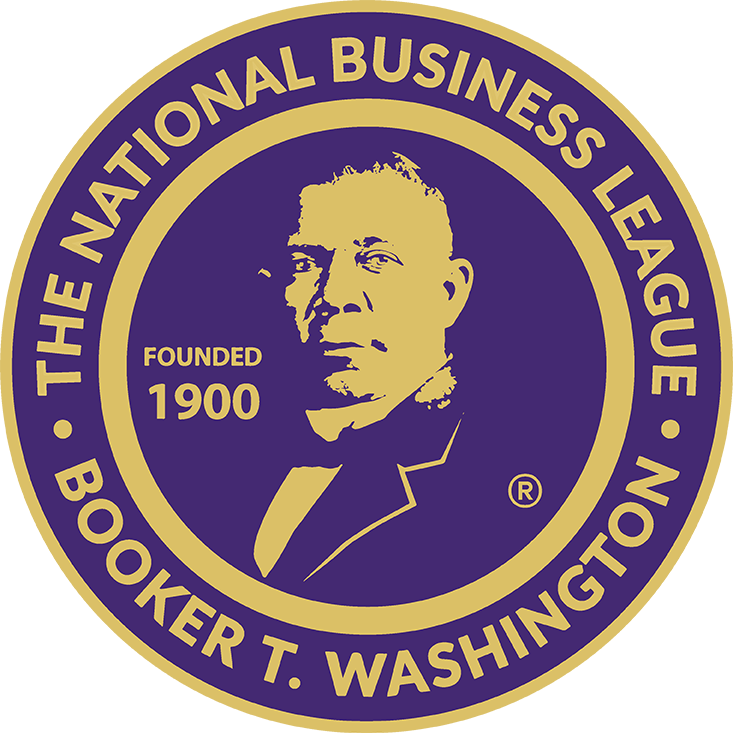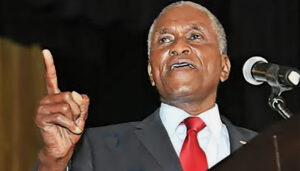FOR IMMEDIATE RELEASE
Wednesday, January, 29, 2025
The Demise of DEI: A New Dawn for Black Economic Autonomy with the Inauguration of Black Business Enterprise (BBE) Certification, Echoing Booker T. Washington’s Legacy
The National Business League Secures Historic USPTO Federal Trademark for Black Business Enterprise (BBE), Revolutionizing Economic Equity and Sovereignty for Black Entrepreneurs Globally
Tuskegee, Alabama — Sixty-one years after the Civil Rights Act of 1964, the Black American community stands at a pivotal juncture, confronting the enduring legacy of systemic economic exclusion. Despite historical legislative efforts aimed at fostering inclusion, Black America finds itself still entangled in the remnants of colonial economic strategies. Today, the National Business League (NBL)® proudly announces a significant achievement: the securing of a USPTO Federal Trademark for the Black Business Enterprise (BBE)®, under registration numbers 98127825 and 98130839. This landmark development is not merely a legal triumph but a profound cultural declaration against the prevailing economic systems rooted in exclusion, inequity, and systemic racism.
BOOKER T. WASHINGTON’S VISION REVISITED
Echoing the ethos of self-reliance and economic empowerment championed by Booker T. Washington, Dr. Ken L. Harris, President and CEO of the National Business League, declared, “We stand on the precipice of reclaiming our economic destiny. Integration was never the solution to our economic disenfranchisement; the experiment has failed. DEI initiatives have failed. Affirmative action has failed. Black businesses and their communities have been left behind, and now we declare unequivocally: We will no longer beg for a seat at the table. We are building our own.”
A HISTORICAL CONTEXT OF RACIAL CONSTRUCTS AND ECONOMIC EXPLOITATION
The discourse on racial constructs and economic exploitation is enriched by scholars like Dr. Theodore W. Allen, who in “The Invention of the White Race,” elucidates how race was engineered as a tool for economic control. When the first Africans arrived in Virginia in 1619, there were no “white” people there; America’s ruling classes created the category of the “white race” as a means of social economic control. White privileges have enforced the myth of racial superiority, created in the late 16th century. This understanding is further expanded by Dr. Jacqueline Battalora in “Birth of a White Nation,” highlighting legal mechanisms that entrenched racial hierarchies. Contemporary analyses by Tim Wise and Dr. Robin DiAngelo expose how these historical constructs continue to undermine genuine DEI efforts, rendering them ineffective in the modern era. Dr. Jeffrey B. Perry’s work further illustrates the global implications of these racial strategies, emphasizing the urgency for a new paradigm in economic justice for Black communities in 2025 and beyond.
PR Newswire Link: https://www.prnewswire.com/news-releases/the-demise-of-dei-a-new-dawn-for-black-economic-autonomy-with-the-inauguration-of-black-business-enterprise-bbe-certification-echoing-booker-t-washingtons-legacy-302358365.html
DEI’S HOLLOW PROMISE: A CRITICAL ANALYSIS
Introduction
The contemporary discourse on Diversity, Equity, and Inclusion (DEI) has been marked by a profound dissonance between its ideological promise and its practical outcomes, particularly for Black communities in the United States. Despite the proliferation of DEI programs post-Civil Rights Movement, the evidence suggests a pattern of systemic failures in delivering genuine economic and social equity.
The Truth of DEI: A Systemic Failure for Black Indigenous Communities
HISTORICAL CONTEXT:
406 Years of Struggle: Black communities in America have endured 406 years of systemic racism, from slavery to modern-day discrimination. The Civil Rights Act of 1964 was a pivotal moment, yet the benefits of this legislation have disproportionately favored other groups.
THE ILLUSION OF INCLUSION:
Diversity, Equity, Inclusion (DEI) Critique: Often labeled as DEI, the practice in many institutions and corporations has been more accurately described as (D)on’t, (E)ver, (I)ntegrate. This critique stems from observed outcomes where:
- Beneficiaries: White women, white male members of the LGBTQIA+ community, and other non-Black minorities have seen more tangible benefits from DEI initiatives.
- Hierarchical Disparity: A clear hierarchy exists, benefiting in descending order from White Women, White Veterans, Asians, to White LGBTQIA+, Hispanics, Native Americans, Ashkenazi Jews, and White Immigrants. Below them, minorities, people of color, disadvantaged, and underserved groups, with Black Indigenous peoples at the very bottom of the economic scale.
DATA AND EVIDENCE:
- Post-Civil Rights Disparity: Despite Black communities’ central role in advocating for civil rights, they have not proportionally benefited from subsequent social advancements.
- Ownership and Privilege: By 1865, white women owned 45% of the slave plantations in the South, highlighting their historical complicity in the system of slavery, which has translated into modern-day privilege through marriage and association with white male power structures.
THE BITTER TRUTH:
DEI as a SCAM: A Stark Reality
For Black people, Diversity, Equity, and Inclusion (DEI) initiatives have largely been a scam, failing to genuinely address the core issues of systemic racism. Here’s the stark reality, backed by evidence, data, and history:
- Systemic Racism and Economic Power Redistribution: Despite the proliferation of DEI programs, there has been little to no significant redistribution of economic power or resources to Black communities. Data shows that the wealth gap between Black and white Americans has not significantly narrowed over the last few decades. In 2023, the typical Black family had a median net worth of about $24,100, compared to $188,200 for white families, indicating a persistent and widening economic disparity. This stark contrast in wealth accumulation underscores the failure of DEI to tackle systemic economic inequalities.
- Supplier Diversity Programs: Supplier diversity programs, which are often highlighted as a part of DEI efforts, have struggled to effectively engage, develop, onboard, and maintain Black suppliers. Studies and reports indicate that Black-owned businesses continue to receive a disproportionately small fraction of corporate contracts. For instance, in 2024, Black startups received only 0.12% of venture capital funding, highlighting how DEI in business practices has not translated into substantial support for Black entrepreneurship. This lack of progress suggests that these programs might be more about optics than actual economic empowerment.
- Maintaining the Status Quo: DEI often acts more as a band-aid than a cure, providing visibility to issues without driving substantive change. The backlash against DEI, including legislative efforts to dismantle these programs, further illustrates how these initiatives are perceived by some as superficial rather than transformative. The claim by critics that DEI is merely “performative” is supported by the fact that many companies have scaled back or entirely eliminated DEI positions and programs following public and political pressure, without addressing underlying inequalities.
- Failure to Engage with Core Issues: A significant portion of DEI initiatives focuses on training and awareness rather than actionable change in hiring practices, promotion, or economic support. This has led to criticisms that DEI efforts are long on promises but short on delivery, with many Black professionals feeling that these programs do not lead to tangible benefits in career advancement or economic mobility.
The historical trajectory of DEI since its inception shows that while it might have started with good intentions, it has not fundamentally altered the racial economic landscape. Instead, it has sometimes served to maintain the status quo by giving the appearance of progress without the substance, thereby continuing to marginalize Black communities in the economic sphere.
CALL FOR NEW DISCOURSE:
- Centering Black Voices: It is imperative that we shift the narrative to one that places Black voices and experiences at the center of discussions on equity and liberation. This discourse must challenge the existing frameworks that only superficially engage with diversity.
CONCLUSION:
The evidence is clear; DEI initiatives, as currently practiced, do not serve Black indigenous communities but rather perpetuate a cycle where Black struggle is acknowledged yet not addressed in meaningful ways. It’s time for a radical reevaluation of these practices to ensure they are not just symbolic but transformative, focusing on genuine equity and liberation for Black people.
October 16, 1901, President Theodore Roosevelt, in an unprecedented act, extended an impromptu dinner invitation to Booker T. Washington, making him the first African American to dine at the White House. This event transcended mere social interaction, catalyzing a significant discourse on civil and economic rights across the nation. [Photo Credit: Courtesy of The National Business League Archives]
LEGAL SETBACKS
Affirmative Action and Supreme Court Decisions: The 2023 Supreme Court decision in Students for Fair Admissions v. Harvard and UNC, driven by minority Asian American plaintiffs, has effectively dismantled race-based affirmative action, a cornerstone of many DEI initiatives. This legal shift underscores a major setback, leaving Black communities to navigate educational and economic landscapes with diminished legal support for diversity efforts. The implications of this ruling extend beyond academia, affecting corporate and governmental diversity policies, rendering them legally tenuous and operationally challenging.
PERFORMATIVE GOVERNMENT AND CORPORATE PROMISES
Financial Pledges vs. Actual Impact: Since the racial awakening following events like the George Floyd murder in 2020, over $200 billion has been pledged for racial equity. However, these commitments have rarely translated into systemic change for Black businesses. A deeper analysis reveals that much of this funding has been either misallocated or not effectively targeted towards Black economic empowerment. Large-scale relief packages like the CARES Act, the Consolidated Appropriations Act, and the American Rescue Plan have disproportionately failed to reach Black communities, with estimates suggesting less than 1% of these funds have directly benefited Black American businesses and individuals. A report from career site Zippia details that of these positions, only 4% of the roles were occupied by Black people in 2023.
STRUCTURAL REGRESSION
Shrinking DEI Departments: There has been a noticeable trend where DEI roles within organizations are either reduced or repurposed into less impactful positions, signaling a retreat from genuine commitment to Black economic upliftment. This regression is often masked by performative gestures rather than substantive action, further entrenching tokenism.
COLONIAL LEXICON
Terminology and Perception: The language used in DEI contexts often perpetuates a narrative of dependency rather than autonomy. Terms like “minority,” “disadvantaged,” “People of Color” and “marginalized” have colonial undertones, suggesting that Black communities are in need of external rescue rather than capable of self-determination and are now considered terms of exclusion for Black American businesses. The Black Business Enterprise (BBE) movement seeks to reclaim narrative power, advocating for terms centered on sovereignty, equity, and empowerment, distancing themselves from other associated negative terms of exclusion.
MERITORIOUS MANUMISSION
HISTORICAL PARALLELS:
The legacy of practices like Virginia’s 1710 Meritorious Manumission Act—where freedom was granted to enslaved individuals who betrayed their communities—mirrors modern scenarios where individual Black leaders or figures might prioritize personal or selective group advancement over communal upliftment, thus continuing a divisive legacy.
DILUTION OF DIVERSITY
Broadening Scope, Narrowing Impact: The civil rights movement, largely a Black struggle, has over time seen its benefits diffused across various groups, often leaving Black Americans at the economic bottom despite their pivotal role in these fights. This has led to a scenario where other demographic groups, including those historically aligned with power structures, have benefited more from policies originally aimed at rectifying Black disadvantages.
POLITICIZATION OF DEI
DIVISIVE POLITICAL TOOLS:
DEI has become a battleground for political ideologies, often used to rally Black votes without corresponding policy changes that would address Black economic stagnation. This politicization has diluted the effectiveness of DEI, turning it into a slogan rather than a strategy for systemic change.
BLACK GATEKEEPERS
INTERNAL BARRIERS:
The presence of Black individuals in high places has not always translated into broader community upliftment. Sometimes, these gatekeepers operate within frameworks that favor individual or small group gains, echoing historical patterns where personal advancement within oppressive systems was prioritized.
CERTIFICATION DISPARITIES
Exclusion from Economic Opportunities: Despite millions of Black-owned businesses, less than 1% hold any form of minority and other non-Black organization-led certification, locking them out of government and corporate contracts that could drive economic growth within the community.
MOVING AWAY FROM DEI
DEI’s hollow promise is evident when we assess the lack of tangible progress against the backdrop of lofty intentions. The critique here is not merely to highlight failures but to pivot towards a new paradigm where Black economic liberation is not just an outcome but the central focus.
THE BBE CERTIFICATION: A NEW PARADIGM
VISION AND MISSION
The Black Business Enterprise (BBE) Certification and Scorecard Program emerges as a transformational initiative, spearheaded by national Black business organizations through the National Alliance for Black Business (NABB) and its partners. This initiative is designed to correct the economic disparities that DEI programs have largely failed to address. It is built on the foundational principles of Black self-determination, economic empowerment, and a clear rejection of dependency narratives.
We are moving beyond allowing non-Black led entities, agencies, programs, and initiatives to create economic platforms and dictate our progress, which we see as a core reason behind the shortcomings of DEI. Too often, white-led or other externally created groups have been positioned to speak for Black-owned businesses, sidelining Black professionals, leaders, and entrepreneurs from the DEI power structures.
With the BBE Program, we assert that Black people will no longer answer to white-led programs, entities, or minority groups that are closely aligned or assimilated into white systems, institutions, and structures that do not genuinely value Black entrepreneurship or the advancement of Black communities. This program is a step towards autonomy, ensuring that the economic narrative and empowerment of Black businesses are owned and controlled by Black leadership for the benefit of Black communities.
Key Components:
- Certification:
- Focus: Target businesses with at least 51% Black ownership qualify, ensuring that the benefits directly impact Black entrepreneurship.
- Market Access: Certification opens up exclusive opportunities in sectors where Black businesses have traditionally been underrepresented.
- Scorecard:
- Transparency and Accountability: A digital tool that tracks and reports how corporations and government entities engage with Black businesses, promoting equitable spending and partnerships.
- Proven Results:
- 3-Year Pilot Success 2022-2025: The initiative has already shown promise through the National Black Supplier Development Program, securing $150 million in contracts with major companies like GM, Ford, Stellantis, Toyota, Magna, DTE Energy, Comerica Bank, and Cummins and a growing list proving its potential to alter economic landscapes.
STRATEGIC IMPLEMENTATION:
- Launch and Expansion: The official launch at the 125th Quasquicentennial National Black Business Conference in Atlanta, GA, will serve as a platform to not only introduce BBE but also to mobilize the Black economic freedom movement through the “Digitize 1 Million Black Businesses by 2028” campaign.
- Cultural Shift: BBE aims to shift the narrative from inclusion within existing systems to the creation of new systems where Black communities dictate the terms of engagement, fostering an environment of economic sovereignty.
CALL TO ACTION:
The era of waiting for external validation or inclusion ends with BBE. Dr. Ken L. Harris emphasizes, “Our liberation will not come from external validation but through our own hands, guided by our own vision.” This new paradigm calls for a collective reimagining where Black business isn’t just part of the economy but is a driving force of innovation, wealth creation, and cultural stewardship.
FINAL STATEMENT:
The Black Business Enterprise (BBE) transcends the mere formality of business certification; it is a profound strategic initiative towards economic liberation, directly confronting and subverting the hollow promises of traditional DEI frameworks. By centering Black economic power, self-reliance, and community wealth-building, BBE echoes the visionary aspirations of Booker T. Washington when he established the National Business League in 1900. This program is not merely corrective of historical economic injustices but is fundamentally about charting a revolutionary course where Black economic prosperity is not merely a possibility but an indomitable certainty, crafted by Black hands for Black futures.
About the National Business League (NBL)®:
Founded in 1900 by Booker T. Washington, is the nation’s first and largest national trade association for Black businesses in the United States. NBL is dedicated to advancing economic equity for Black businesses. Visit www.nationalbusinessleague.org.
About the National Alliance for Black Business (NABB):
Co-founded in 2022 by The National Business League, National Black Chamber of Commerce, and The World Conference of Mayors and now more than 100+ new members, NABB unites various Black organizations to promote growth and prosperity for Black businesses. Visit www.nationalallianceforblackbusiness.com.
PR Newswire Link: https://www.prnewswire.com/news-releases/the-demise-of-dei-a-new-dawn-for-black-economic-autonomy-with-the-inauguration-of-black-business-enterprise-bbe-certification-echoing-booker-t-washingtons-legacy-302358365.html




